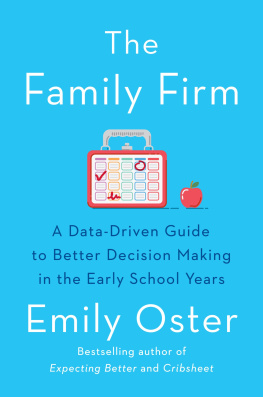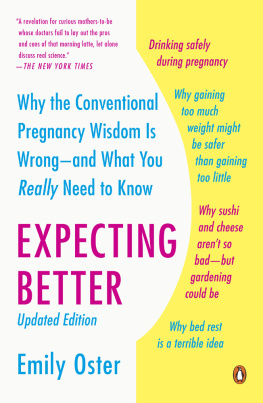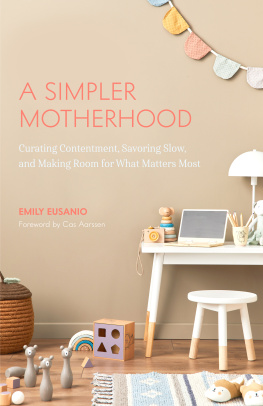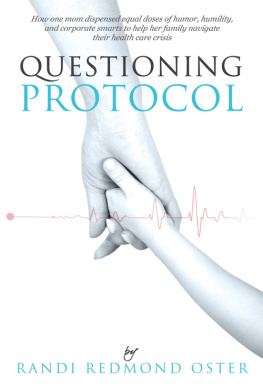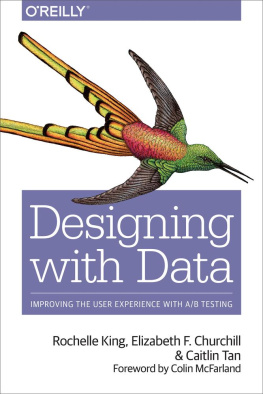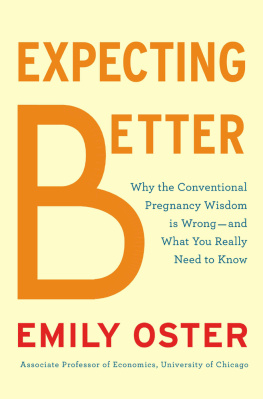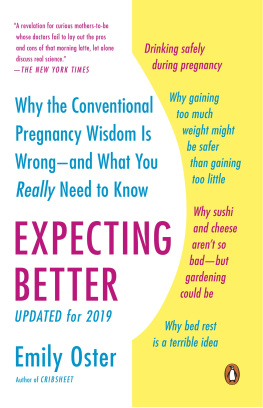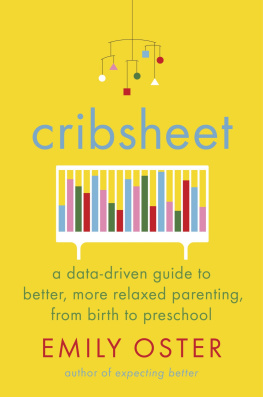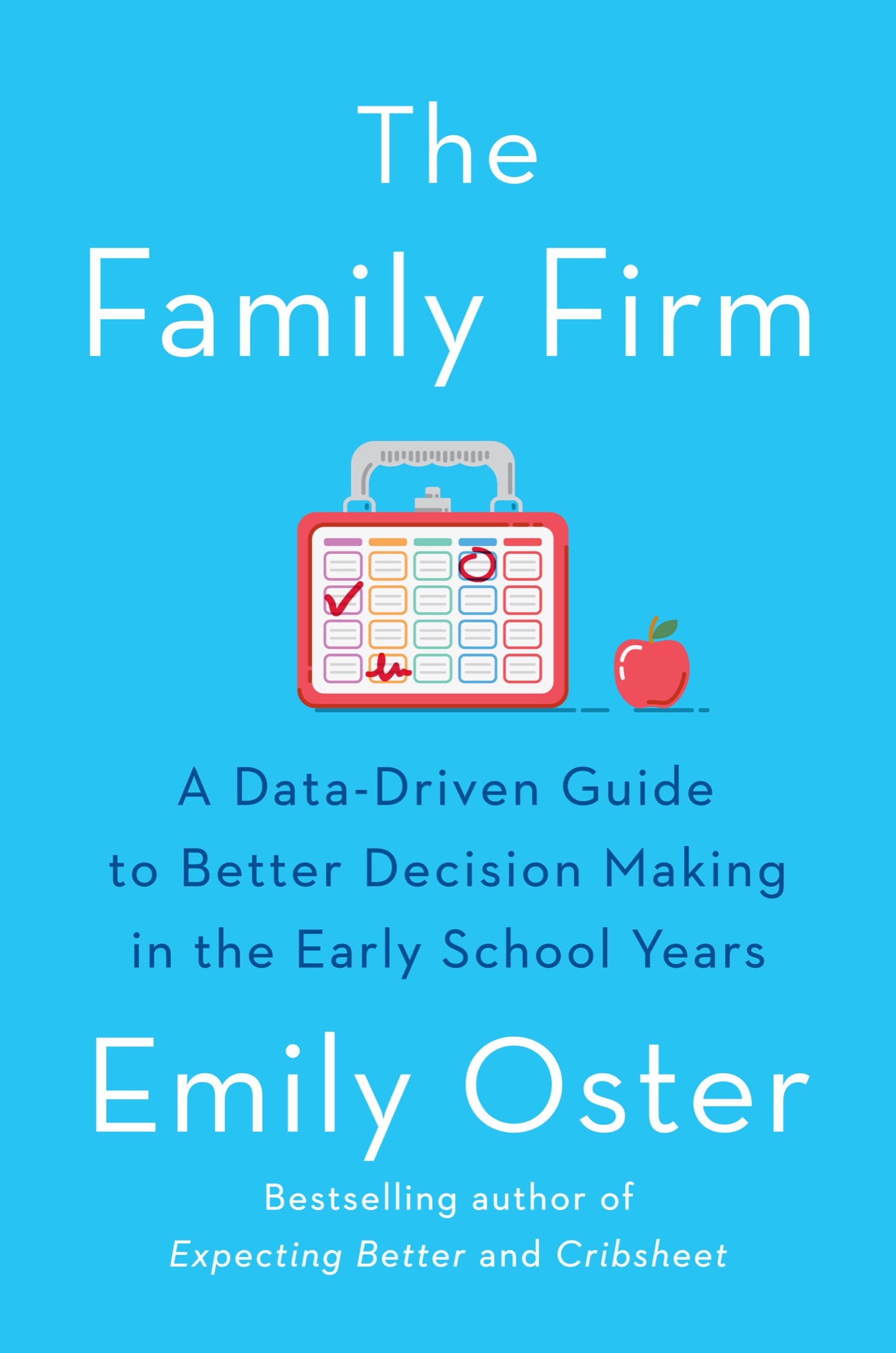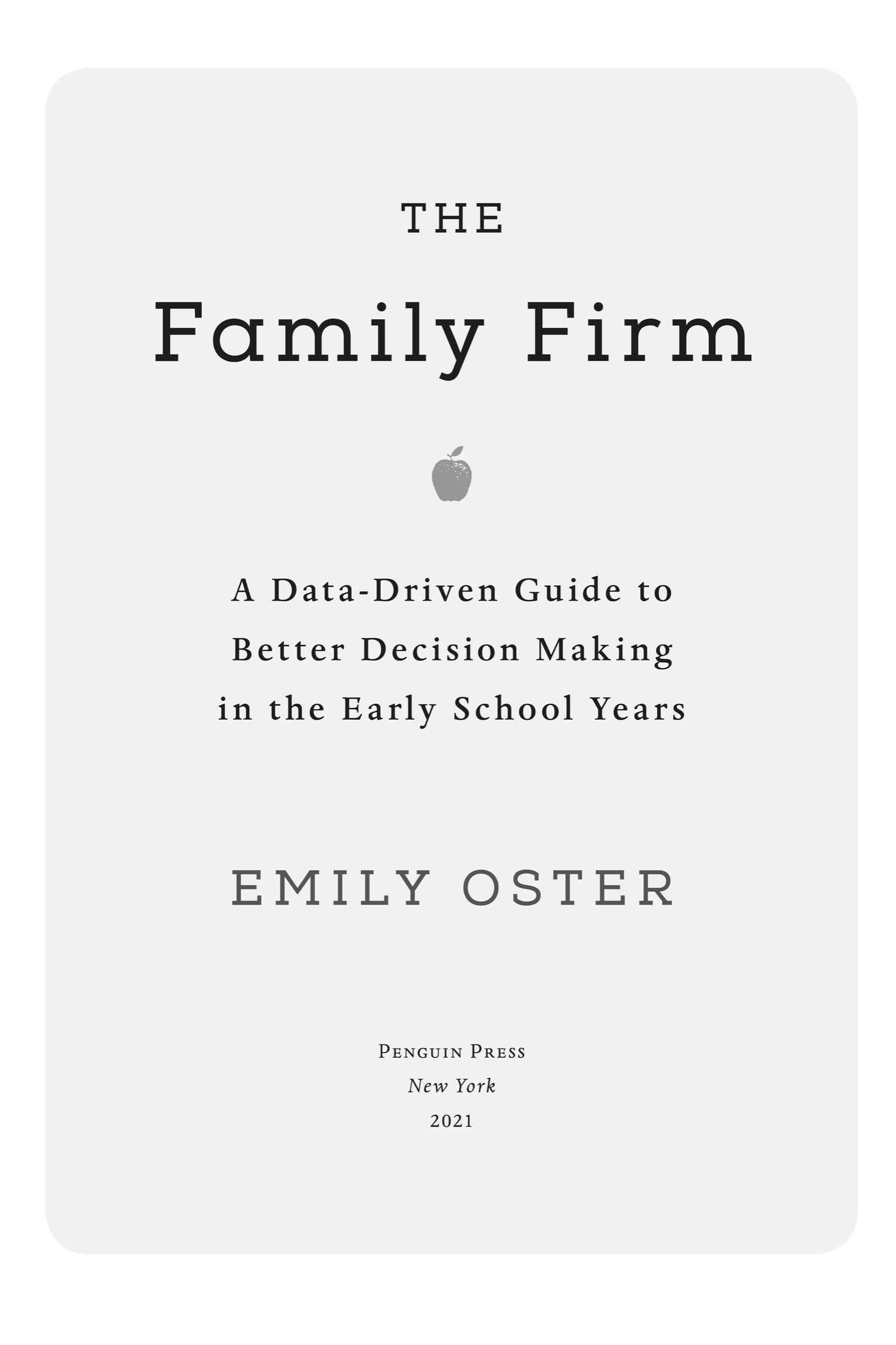Penguin supports copyright. Copyright fuels creativity, encourages diverse voices, promotes free speech, and creates a vibrant culture. Thank you for buying an authorized edition of this book and for complying with copyright laws by not reproducing, scanning, or distributing any part of it in any form without permission. You are supporting writers and allowing Penguin to continue to publish books for every reader.
Names: Oster, Emily, author.
Title: The family firm : a data-driven guide to better decision making in the early school years / Emily Oster.
Description: New York : Penguin Press, 2021. | Includes index.
Identifiers: LCCN 2020057449 | ISBN 9781984881755 (hardcover) | ISBN 9781984881762 (ebook)
Subjects: LCSH: Parenting. | Technology and children. | ChildrenEducation, Elementary. | Education, Elementary. | Decision making.
Neither the publisher nor the author is engaged in rendering professional advice or services to the individual reader. The ideas, procedures, and suggestions contained in this book are not intended as a substitute for consulting with your physician. All matters regarding your health require medical supervision. Neither the author nor the publisher shall be liable or responsible for any loss or damage allegedly arising from any information or suggestion in this book.
Introduction
If you are parenting in the modern age, there will come a time when you will face the great question: When can I get a phone? The question might come when your child is ten, but more likely five, or eight.
All my friends have one! If I dont get one, Ill never be invited to X or Y or Z. Dont you want me to be able to call you if there is something wrong? Lauren at tennis camp already has one and shes younger than me. At some point, a friend of your child may get a phone, and then they may start texting your phone. How r u i miss you emoji-emoji-emoji. Perhaps it is worth it just to avoid these texts.
However, when you investigate, the internet is a source of cautionary tales: Phones Linked to Anxiety in Teen Girls or Phones Shown to Lower Student Achievement. An article about Silicon Valley parents says they are eschewing phones, along with all plastic toys. The latter seems unrealistic, but maybe the phones are a possibility. And yet everyone elses kid does seem to have a phone. Are you going to be the only one? What do they know that you do not?
This is a new kind of parenting dilemma. When youre parenting a baby, and wondering about questions like Is it a good idea to swaddle? Should I feed them solid foods at four or six months? What about sleep training? the decisions feel overwhelming in their frequency and their newness. Also, you are making them in an exhausted, dreamlike state.
But from the vantage point of having an older child, these choices can seem incredibly tractable. There is, for example, an actual answer to the question of whether swaddling is a good idea (yes). Its based on data, research, evidence. Its reasonably consistent across healthy babies. And it is also simply not that important in the grand scheme of things. If you swaddle your baby, they will sleep better early on. But if you do not, nothing terrible will happen.
On the other hand, when to get your child a phone feels nothing like this. There isnt much data on it, certainly nothing that would rise to the level of what we know about swaddling. It almost certainly has wildly different effects depending on the child. The best answer to this question could well be different for two children in the same family, let alone two different families.
Adding to the problem, for many older-kid decisions, the question itself may not be immediately clear! Is the question whether the kid should have a dummy phone that only calls their parents and the police? Or whether they should have the latest, slickest Google phone? Your partner may be thinking about the second question while you are contemplating the first. Forget about solving the same problemsometimes we arent even talking through the same choices.
This book is focused on the post-toddler but pre-teenager stagelets say, the ages of five to twelve. Well begin with seeing your kid off to elementary school and walk through the very beginnings of puberty. Well leave teens for another day.
Parenting decisions in this age range do not come with the frequency that they do with a baby, but they are almost always more complicated. Whats the right kind of school and at what age should they enter? How do you get them to eat a healthy diet? Should they play a sport, and if so, how seriously? Are you a helicopter parent, a free-range parent, a tiger parent, an ostrich parent? Is that last one even a thing?
These issues are all a bit like the phone: they feel big and important, and its not always clear even how to start. Its easy to see how they can overwhelm harried families.
That brings us to the other hallmark of this period of parenting: logistics. For many of us, parenting in the twenty-first century is an exercise in extreme logistical complexity. Nowhere is this more vivid, for me, than in the case of summer camp.
My younger brother has four kids. Many kids means lots of logistics, so I wasnt too surprised when he signed off an email exchange with me by saying he had to get back to the spreadsheet he was working on to plan the kids camps.
This was in November.
It turns out his kids go to a tremendous number of different campsvarious sports, sleepaway, sailing, something called Muskrat Camp (or maybe Im remembering the rodent wrong?), which is apparently so popular you have to plan before Thanksgiving to get the right week. Because most American school systems take almost three months off in the summer, summer camp is a largeand very complexpiece of the school-age family puzzle.
Where we live, one of the most popular camps is Zoo Camp. Sign-ups open for one day in February, and if you miss it, youre out of luck. Or, worse, stuck with an inferior week, not the one your kids friends are in (their parents remembered the sign-up day).
Even if, by some miracle, you remember to sign up, youve got to contend with the logistics of camp once summer arrives. Inexplicably, in the period before camp starts, the famous Zoo Camp requires you to sign up for what sandwich your child wants. If you forget (yes, I forgot), you get a significant tut tut at drop-off, plus your kid is stuck with the last available sandwich type (sunflower-seed butter and jelly on wheatclearly no ones first choice).
And the timing! Zoo Camp, for example, is from 9 a.m. to 3 p.m., with no before- or after-care. Whos going to arrive late and leave early from work to make this doable? Can the grandparents come in that week? Do you need a babysitter on top of camp? Camp is expensive, and so is the babysitter. Logistics relate to time, but also to money.

